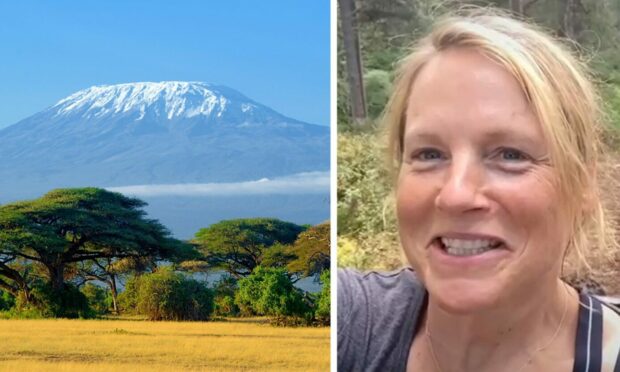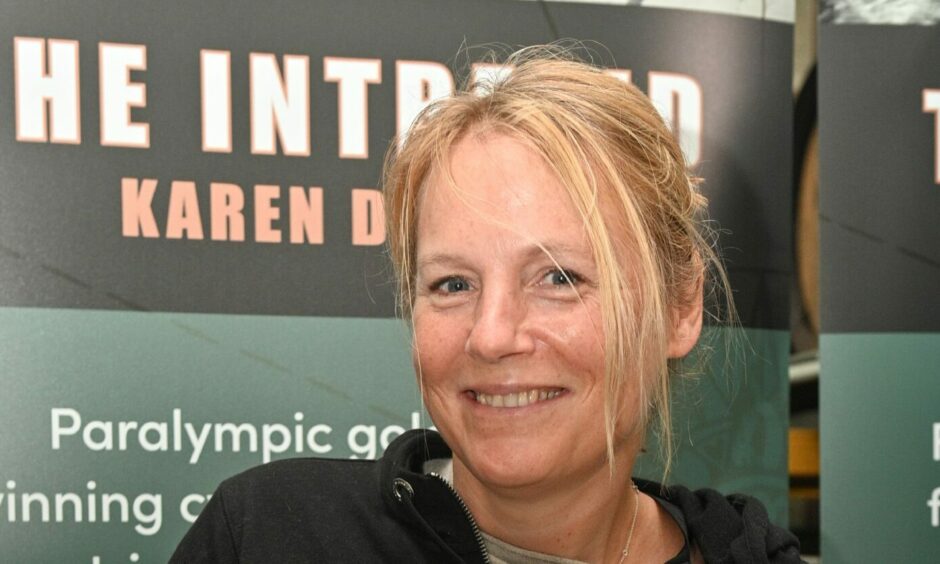Whether it’s an Antarctic trek, a jungle safari or an ascent of one of the world’s highest mountains, Karen Darke doesn’t shirk a challenge.
But confronting physically-demanding adventures is just part of the goal, alongside tackling mental health and spreading hope.
Among her many achievements, the gold medal-winning Paralympian has hand-skied across Greenland. She hand-biked through the Himalayas and scaled California’s El Capitan.
In December, she completed the Pole of Possibility, a record-breaking cycle and ski expedition to the South Pole.
And now she is testing her physical and mental strength with two major treks in Africa.
Sea to summit adventure
From August 20-26 she will be part of the Kenya Safari Bike Ride when she will be joined by a small group on a six-day cross-country adventure.
The expedition through Kenyan Game Park from Mount Kilimanjaro to the coast will be a “warm up” for an ascent of the 5,895 meters (19,341ft) highest peak in Africa from August 27-September 3.
Both trips are being undertaken to raise funds and awareness for charities supporting improved physical and mental health, Voice of Specially Abled People Inc. and World Jenny’s Day.
The latter is in memory of her friend’s daughter who took her own life aged 16.
A fundraising page has been set up to support both organisations.
The diverse team on the climb also includes visually impaired double Paralympic gold medalist and climber Steve Bate and Inverness-based film-makers Mike Webster and Sherrill Mason.
Preparations for the Africa trips have seen Karen train in forests around Grantown to road test the special ICE Trikes hand-pedalled trike she will use.
Her regime includes three gym sessions a week and six bike rides of between 2-4 hours, including a mix of road cycling and off-road.
She also climbed Ben Rinnes, the highest mountain in Moray, for the SurfABLE Scotland charity which offers para-surfing sessions on the Moray coast.
Accompanying her on that climb was another inspirational figure in Jade Edwards, a quadruple amputee who was the first para-athlete for Scotland at the World Para-Surf Championships in 2022, aged just 10.
Climbing Kilimanjaro step by step
The build-up to Africa has been intense, so is she ready? “It’s one of these things you feel you can never be properly prepared for. There are so many uncertainties.”
Karen has taken on board one of the first Swahili phrases Kilimanjaro climbers learn – ‘Pole, Pole’ (slowly, slowly).
The team’s plan is to pace themselves, covering relatively small distances each day, involving about five hours of walking and snow climbing.
“That’s all you can do when things are so overwhelming”, she says. “You can’t really plan for it, you just have to be flexible and take it step by step.”
Adapting to new challenges is something Karen has done now for 30 years and helps her motivate and inspire others.
In 1993, aged 21, she suffered a major accident while climbing cliffs at Cove in Aberdeen, leaving her paralysed from the chest down.
But her determination and passion for sport and the outdoors saw her go on to achieve some remarkable feats.
In 1996 she hand-biked across the Himalayas from Kazakhstan into Pakistan. She returned in 2005 and 2018 to cross the Indian Himalayas.
In 2012 she won a silver medal at the London Paralympics the women’s road time trial and then gold at Rio in 2016.
Karen, who splits her time between Inverness and Lossiemouth, is always seeking a new adventure.
Finding health and happiness
“I’ve been fortunate to have so many adventures and what interests me now are the stories we can tell through it.
“The inspiration it gives other people in terms of what we can overcome, what is possible and how we can look after our mental health and the things that matter most to our happiness.
“These expeditions can bring life back to its simplest. When you’re there you’re really dependent on each other, so that sense of human connection and relying on each other is great.
“There’s something about bringing things back to their simplest that feels to me really refreshing and healing, because sometimes we get too distracted by this material world and all the busyness which I don’t think is healthy for us.”
Raising awareness and money for the charities is also important to offer hope to people perhaps struggling with mental health.
“When life feels it’s getting too much, or people feel overwhelmed, you do lose hope.
“But, no matter the challenge, all sorts of things are possible and there is a world out there of incredibly good people doing amazing work in all sorts of domains and charities that exist to support people.
Message of hope
“So the message of hope is really important.
“Obviously, it doesn’t mean climbing Kilimanjaro. But we’re in a world where, no matter what resources we’ve got, we can do something simple to connect with people and really have positive experiences which I think are the root of hope and health.”
For more Inverness stories and updates, join our local Facebook group.


Conversation